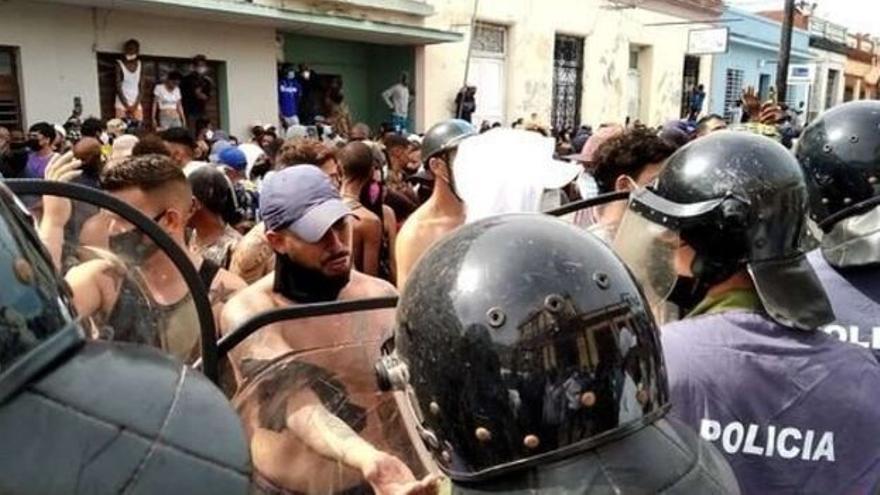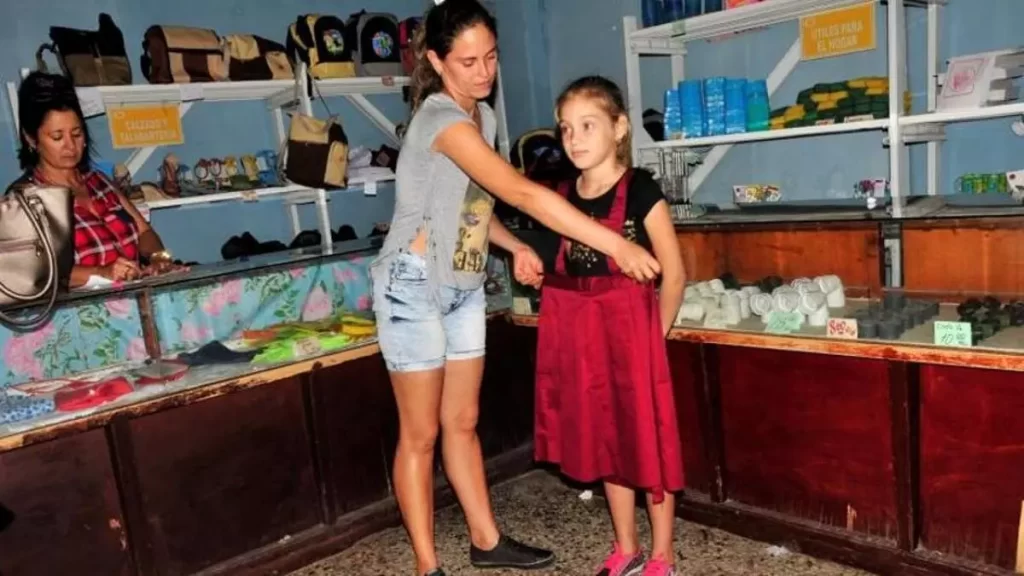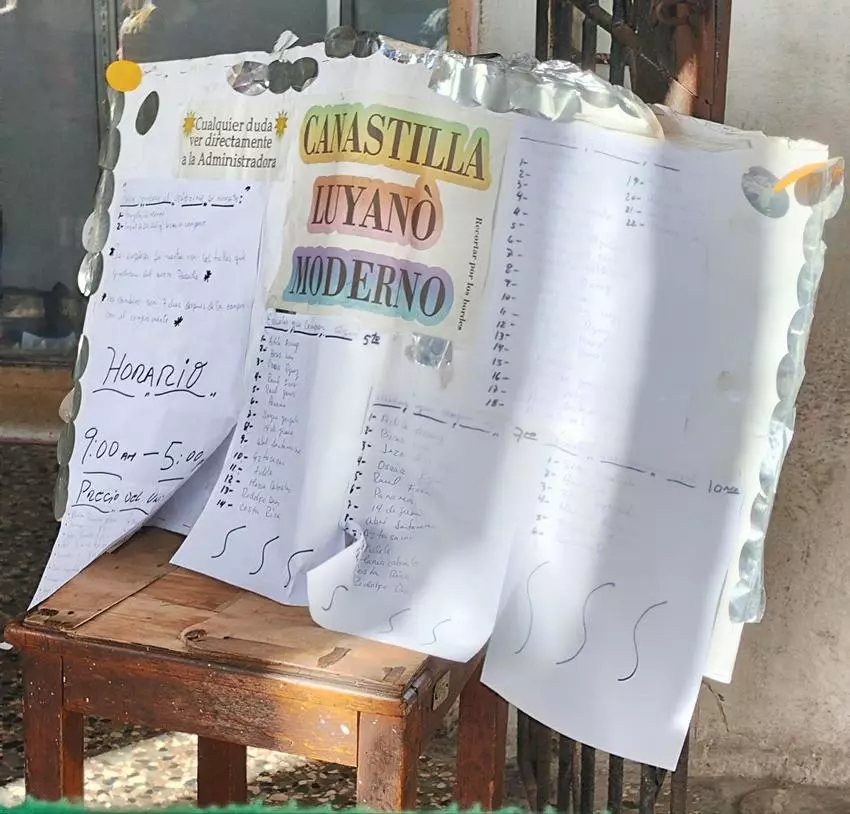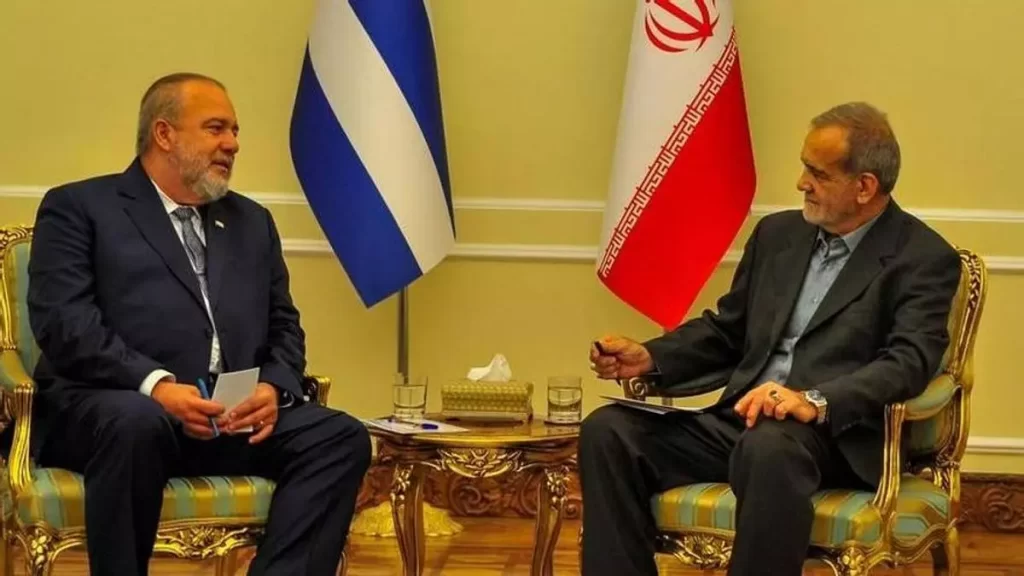- ’14ymedio’ interviews the musician Gorki Águila in a place in Mexico that we are hiding for his safety
- “My plans were in Cuba, where I have my artistic project”
- “I am in a dreadful loneliness; I have a growing resentment towards the communist regime every day”
- “I want to overthrow the Castros, I don’t want to f’ing reform communism at all”
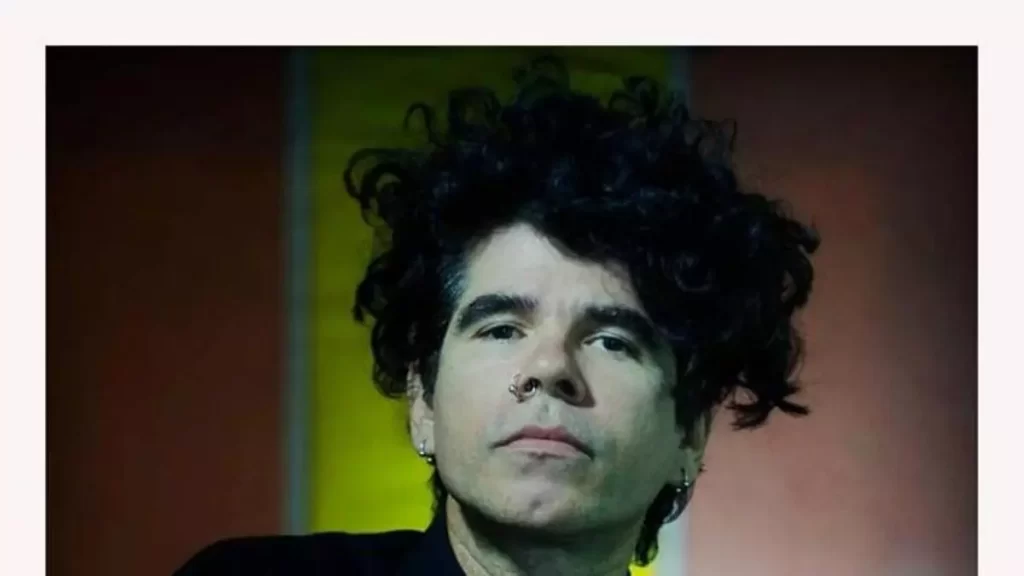
14ymedio, Adyr Corral, Mexico, 15 July 2024
MEXICO/Scene 1
Gorki Águila waits impatiently on a park bench located in a part of Mexico that he expressly asked not to be revealed, for security reasons. The 55-year-old musician left Cuba in mid-May, after being threatened by the regime with serving a sentence of at least four years for contempt. Months after the incident, he is still afraid of what could happen to him, and he does not allow photographs either, as that would make it easier for political police agents to find his location.
While he suspiciously puffs on a cigarette, the musician reveals to 14ymedio that he has received threats from State Security since his first day here: “They wrote to my WhatsApp. As soon as I set foot in Mexico, they asked me, as if they were my friends: ‘Is everything okay, were you able to talk to your family?’ They know where my family lives,” he says, while showing his phone screen with the conversations.
The leader of the Cuban punk band Porno Para Ricardo now works in a musical instrument store to support himself. He arrives at the appointment wearing black pants and a jacket with a white shirt. Mexicans who pass by, sense from his aura, without really knowing who he is, that they are in the presence of a rock star and they direct phrases at him in the form of compliments such as “Long live rock, Robert Smith”, in reference to his resemblance to the singer of The Cure, the English post- punk band, who wears a haircut similar to his.
“They humiliated me and lowered me to a level… I spent almost 15 days crying and not being able to speak. “I arrived with a deep post-traumatic stress”
His new fans also do not imagine that, at the beginning of May, the political police prevented him from boarding a plane that would bring him to Mexico in his first attempt to leave Cuba after receiving an ultimatum, under the argument that it was regulated. Or that, on that very occasion, State Security agents detained him at José Martí International Airport in Havana and later imprisoned him in their barracks to intimidate him.
“They humiliated me and lowered me to a level… I spent almost 15 days crying and without being able to speak. I arrived with deep post-traumatic stress. The protocol for you to go in there is that when you enter, you lower your head against the floor of the patrol car, and it made me extremely dizzy, because the patrol car started spinning, fffff! fffff! So that you don’t know where you’re coming in”, he says about his stay at Villa Marista [a pre-Castro private Catholic school turned into a high security prison].
14ymedio. Why did you come to Mexico?
Gorki. I didn’t choose to come. No, no, I came because I had my residency, so I didn’t need to get a visa, but State Security wanted me to leave. They spoke to me: “Either we’ll put you in prison or you’ll leave”. It’s not just me, they have done it to many opponents.
14ymedio. They told you: you are going to jail or you are leaving Cuba and you preferred…
Gorki. Prefer? No, I did not prefer, I am here under state coercion. I would be in Cuba, you understand? When I went to the airport, they told me, you’re not going to leave and I’ll explain why, because they wanted me to tell them when I left… They knew I was going to Mexico, but they wanted to know what day I was leaving, to carry out an operation and record me on video.
14ymedio. Like a kind of political victory?
Gorki. Yes, and also take those images to later perhaps, perhaps, discredit me. Because I go out with them at the airport, just like that, talking and them making jokes with me, as if they were my family: “Heh-heh. Gorki, you screwed that little girl.” They were making stupid jokes and obviously I didn’t pay attention to them, though I may have laughed at times, I don’t know. And that is filmed by airport cameras. They’re going to use that, obviously.
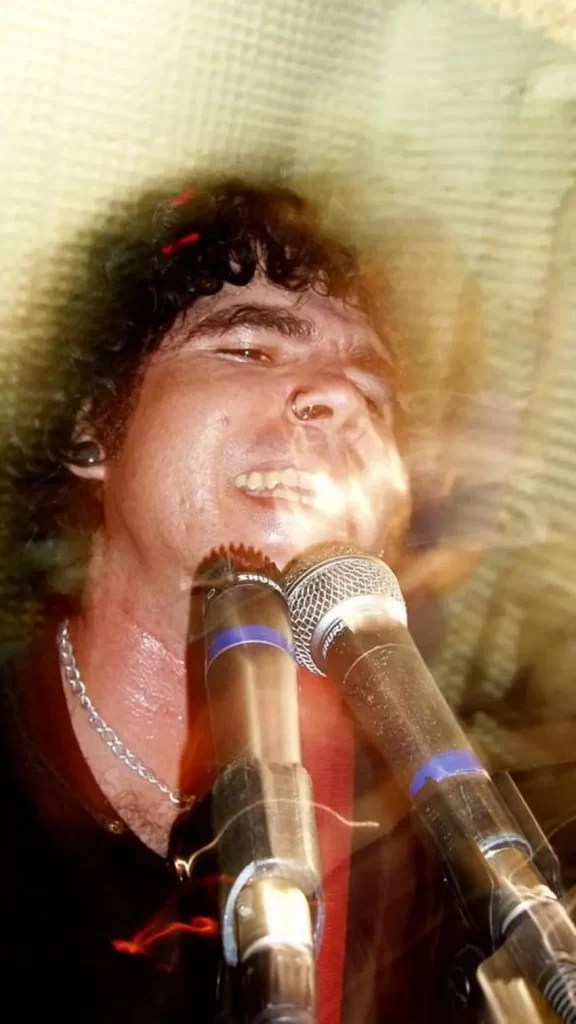
Scene 2
Gorki rummages through the school-style backpack, black with striking orange stripes on the sides, that he has with him. After searching through his belongings with his hand, he takes out a cigarette and lights it while he recounts part of the interrogation he had when he was detained in Villa Marista. “The guy sits next to me and tells me: ‘Look, we’re going to help you, you have a crime of contempt that has a penalty of at least four, five or ten years. But we’re going to help you. We’re going to give you a chance,” he says in a fake voice, as if to give more theatricality to the anecdote.
He takes a couple of drags on the cigarette and the smoke makes his eyes narrow as he continues with his story. “They said something so clownish, so ridiculous, with a conviction: ‘We are going to help you within socialist legality’. At that moment, I should have said, seriously… Seriously? I have a more or less minimal IQ, the southern hemisphere of my brain works….” At that moment, a young boy who must not be older than 17 interrupts him and the interview is abruptly suspended. continue reading
“Excuse me brother, I heard that you are a guitarist. I would like to give you this drawing. I hope you like it” – says the little boy, extending to the musician a sheet with a fairly abstract sketch drawn freehand with a pencil and that from the corner of his eye looks like the portrait of a humanoid figure with reptilian features.
– How cute, huh.
– Thank you for accepting it, the kid responds and then the novice cartoonist threatens to walk away but Gorki prevents him from doing so.
– Hey man, come. Let’s see if I have ten pesos, he says as he digs through his backpack again, this time looking for some change.
14ymedio. What was your routine like in Cuba and how has it changed in Mexico?
Gorki. I’ll be honest with you, the difference for the better is that I have guaranteed coffee, that I have a little bit, that is, condensed milk to add to my coffee and I have bread, guaranteed. It’s so easy to eat here, it even surprises me. Everyday life in Cuba was “what the “f” am I going to eat?” Sometimes, I didn’t have coffee and getting up without coffee is like not getting up. Sometimes, I didn’t have food in Cuba and I would say: “I’m going to stay here in bed longer.” And also, I have medicines, for example, I can go to any pharmacy… they are expensive, but there are options. My head was hurting – I suffer from epilepsy – and I didn’t have a f’ing aspirin in Cuba, man, and here I have it at hand.
Sometimes in Cuba I didn’t have food to eat, and I would say ‘I’m going to stay here in bed a bit longer
14ymedio. What is your life like here?
Gorki. I can describe it to you in three words: loneliness, rootlessness and a lot of resentment, a lot of hatred towards the Castro regime, towards the communists. I have no plans in Mexico, I had plans in Cuba, they plucked me from my land under duress and threw me here. My plans were in Cuba. I have my artistic project, I have my recording studio project, that’s where I come up with the songs, where I come up with my posters (some of them are for sale). Those are my plans. Now, what I have to do is make them up here, what I am is in pure loneliness here, in a rootlessness that you don’t even know at what level. An increasing sadness and resentment towards the communist regime every day, I hate it much more, every day, every minute, every second that passes. I hate it a lot. I have to remake myself.
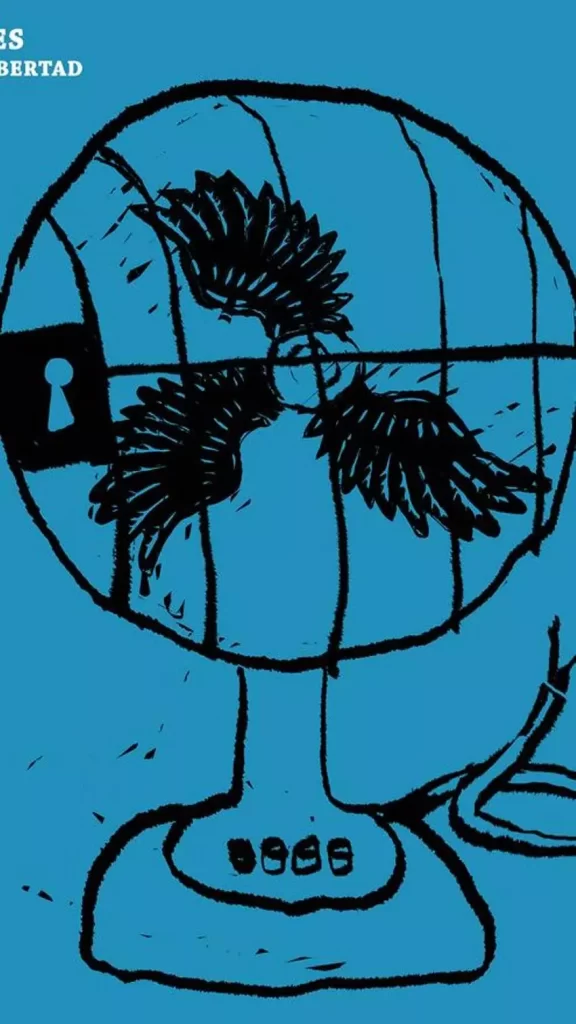
14ymedio. Here, haven’t you been able to?
Gorki. No. I live in a makeshift room in a living room, how do I move a studio there?
14ymedio. Is it a matter of time?
Gorki. I imagine, I suppose. I will never give up my creative side, but that bothers, humiliates, offends, degrades. I’m telling you, every day I hate communism and, in particular, the Castro regime more so.
14ymedio. Do you feel free in Mexico?
Gorki. You have to define freedom, you see, how do you feel free? You feel free within your context. You feel free when you obey your will. How can I feel free, if I am living uprooted? I am in a context that is not mine.
14ymedio. How are you doing with that?
Gorki. I lived in Cuba in my house. Now, I have to live on a mattress in a living room, imagine! I don’t know if you have habits like that, in that way, attached, but for a 55-year-old man the worst thing you can do is tell him, come on, let’s go to a nursing home! I want to die in Cuba. Every day there are fewer people, there are fewer Cubans in Cuba. Cuba, now, is no longer Cuba. Let’s think about that. It’s a crime against humanity, what the Castros are doing in that place. Their hands are not going to shake when they shoot, like in Belarus, no, no, they are going to shoot and kill. 11J happened, they killed two or three people with total impunity. I am an opponent. I want to overthrow the Castros, I don’t want to reform communism at all. I am here because I believed in those plans, and at a specific moment, those plans fell apart in my head. I felt like I was totally alone immersed in a whole broth of demagoguery and corruption on the part of people who say they are our friends and that they are helping us. There is no opposition in Cuba today, I tell you categorically. With all propriety. There is no opposition in Cuba. There are people who send phone recharges, crumbs, and who dictate a road map, that is not opposition.
What the Castros are doing in that place is a crime against humanity. Their hands are not going to shake when shooting, like in Belarus, no, no, they are going to shoot and they’re going to kill.
14ymedio. What is needed for there to be opposition in Cuba?
Gorki. Create a real, raw debate to locate what our problems are. When you want to be cured, you have to know that you are sick, if you don’t know that you are sick, you will never be cured, that is the first step. And after accepting that you are sick, you have to diagnose yourself, there has to be a diagnosis. So, to recognize the disease, we are still in the step, we do not recognize that the Castros are not our only enemies, but everything that surrounds that. In other words, there are people who are living off the Cuba issue, the “freedom in Cuba” issue.
Look, when you are a flat tire fixer and in front of you, on the road, there is a pothole full of glass, do you want that pothole to be fixed? If you live by the fact that every car that gets a flat tire comes and has you fix the flat, your business is fixing flats, you get it? When (or why) are you going to tell the driver: “Oh, that pothole is bad!”? So it never gets fixed, because you’re f’ing living off that pothole, your dough comes from there, and then, that’s what’s happening. In no road map of any NGO [Non-Governmental Organization] that exists, in any other country, or in Miami, does it say: “Cuba is going to be liberated in 2050. I am going to stop making money and living off this NGO and stop living this way.” None! No NGO tells you “in such a year I will stop receiving money for doing this job that for me is onerous and infamous, because I am receiving money from living off the issue of freedom in Cuba and in addition, I get applause from the international community.”
14ymedio. Previously, it was thought that if Fidel died, the Castro Regime would fall….
Gorki. That’s what I thought when I was a kid. And who has to die next? Until when, people? The only ones who are going to overthrow the regime are the Cubans who are inside Cuba, we are not going to overthrow it from beyond, opposing it with air conditioning.
14ymedio. How does art influence all this?
Gorki. For me, art is super important, why do you think that politicians always join artists in campaigns, because they know that art is a super immediate, super powerful vehicle. Pop music is super powerful when it comes to transmitting, much faster than a pamphlet and a speech. A pop artist’s audience members are voters. A pop artist utters any stupidity and those people are going to believe it.
14ymedio. Is Porno for Ricardo still alive?
Gorki. Yes, when you see I’m dead is when you will be able to say “Porno para Ricardo ceased to exist.” It will exist as long as I live.
14ymedio. In the past, you said that Porno para Ricardo was a rock band that wanted to have fun, have they had fun? Are you still having fun?
Gorki. Yes, we have had our revenge. Look, always, in creation, you suffer the creative process…
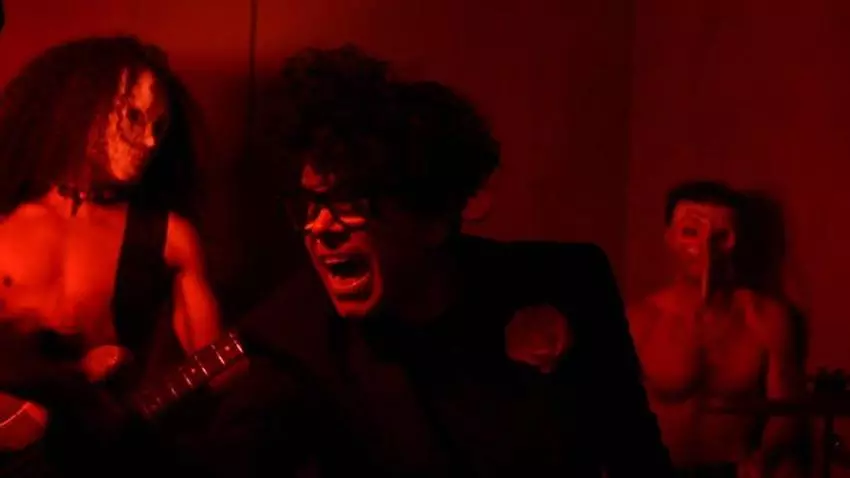
Scene 3
Gorki is interrupted again. This time it’s an old lady who goes around the park in her wheelchair begging for alms. “They don’t give me a coin. Whatever you like to support me with, young people. Thank you, young people, for helping me,” she says, without any remorse for cutting off the singer’s story about his creative process.
The backpack was left open since the last rummage, so it is not difficult for Gorki to take out a coin and give it to the woman who, before extending her hand to receive it, had already started her wheelchair by giving the right wheel a strong push. “Also, if you give it to everyone you will run out of money, man! And I feel sorry for them, but sometimes they are also scammers. Anyway,” says the rocker before resuming the conversation.
14ymedio. What price have you had to pay for having fun?
Gorki. The price we have had to pay, for example, is to give up our audience. We did it conscientiously. We knew that if we took the step of getting directly involved with the regime, we were going to disappear, that is, they were going to give us a magical pass like Harry Potter, with the wand, tiki, tiki. You don’t exist anymore.
I really dreamed that I could influence, that is, influence in the sense of my crumb. That, at one moment I could experience the fall of the Castro Regime. I have no hope anymore, the way things are
14ymedio. When you woke up, the tyrant, the tyrannosaurus, was it still there?
Gorki. Yes, exactly. I made a parody of it, I even put it on Facebook once: “When I woke up, the regime was still there.” You could say, because I really dreamed that I could influence, that is, influence the meaning of my crumb. That at one moment I could experience the fall of the Castro regime. I’m no longer hopeful, the way things are.
14ymedio. Do you think you won’t live to see it?
Gorki. Now I’m not sure. I have lost faith in that sense, something that depresses me. My mom died and she didn’t see it, it seems I will too. It’s kind of sad… Don’t you want a beer? I know a place where we could smoke.
14ymedio. What’s next for Gorki in Mexico? What are his plans?
Gorki. What I am sure I can tell you, in the present, is that I am going to continue being anti-Castro and I am going to continue being libertarian and I am always going to bet on freedom and I am going to be consistent and coherent with what I have said. Now, not in the future. I don’t know what’s coming in the future. I’m telling you a punk motto, and that’s it. The Sex Pistols motto. But I don’t know what’s going to come with me. I have total uncertainty. I just tell you, part of my hatred is based on that. They have put me in a place where I do not want to be. I would like to come visit, and go to my place, to my Motherland. I don’t know what awaits me, I would like to make music, join bands here to play on stage, to experiment and give that message that Cuba is not what they sold you, that theorem that they have sold you. I would love to do that.
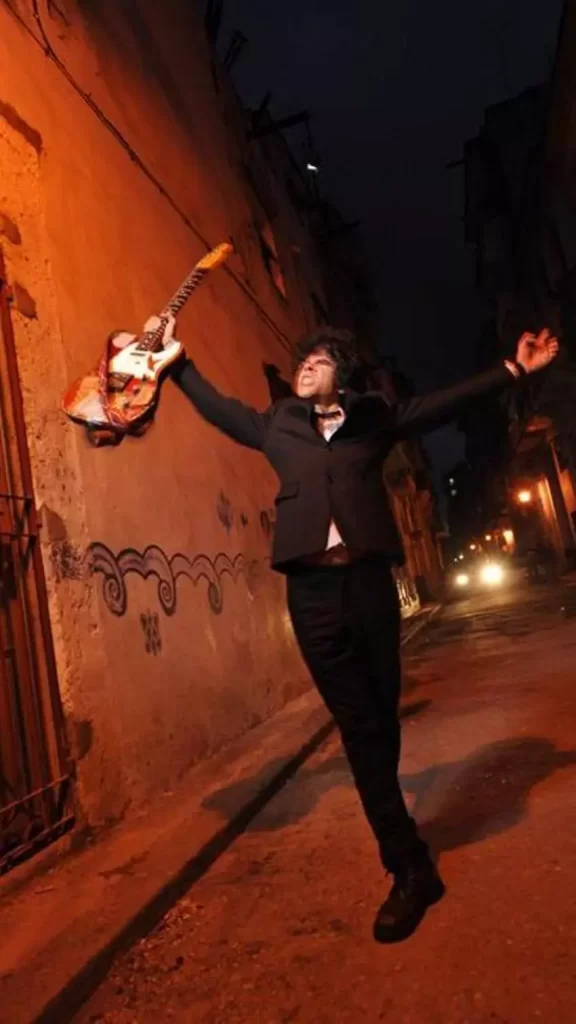
Scene 4
Someone else approaches Gorki and this time completely steals his attention. She is a brunette woman in her 20’s. The pretext for interfering in the interview is to collect some money to cover the expenses of an animal shelter.
-Hello, sorry. Sorry for the inconvenience, I come from a shelter that is dedicated to rescuing dogs. At the moment, we have 300 dogs and 50 cats, I don’t know if you would like to support us, says the girl.
– I am a fan of dogs, Gorki answers.
–Look, there are two there– says the activist while pointing to her companions, who have a Great Dane and a Golden Retriever doing convincing work, based on their mere presence, with the passers-by from whom they also ask for support to pay for their food and that of the other animals.
At that moment, Gorki ends the interview and gets up to go meet the dogs.
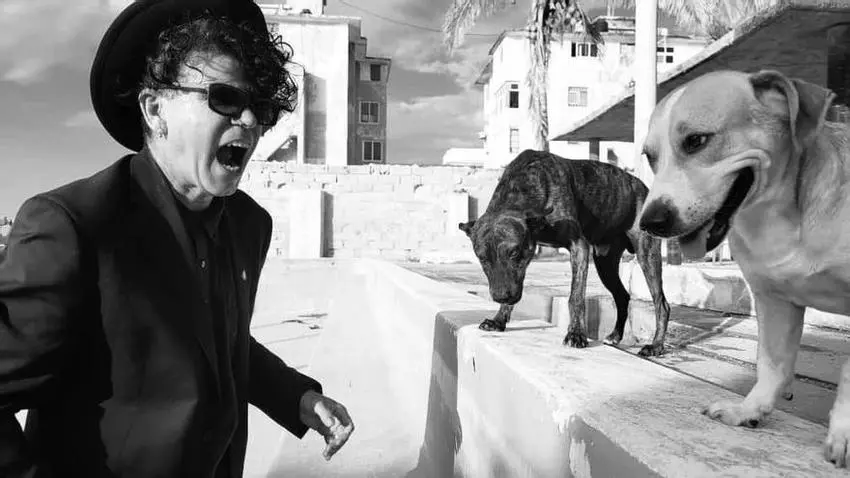
Translated by Norma Whiting
____________
COLLABORATE WITH OUR WORK: The 14ymedio team is committed to practicing serious journalism that reflects Cuba’s reality in all its depth. Thank you for joining us on this long journey. We invite you to continue supporting us by becoming a member of 14ymedio now. Together we can continue transforming journalism in Cuba.









